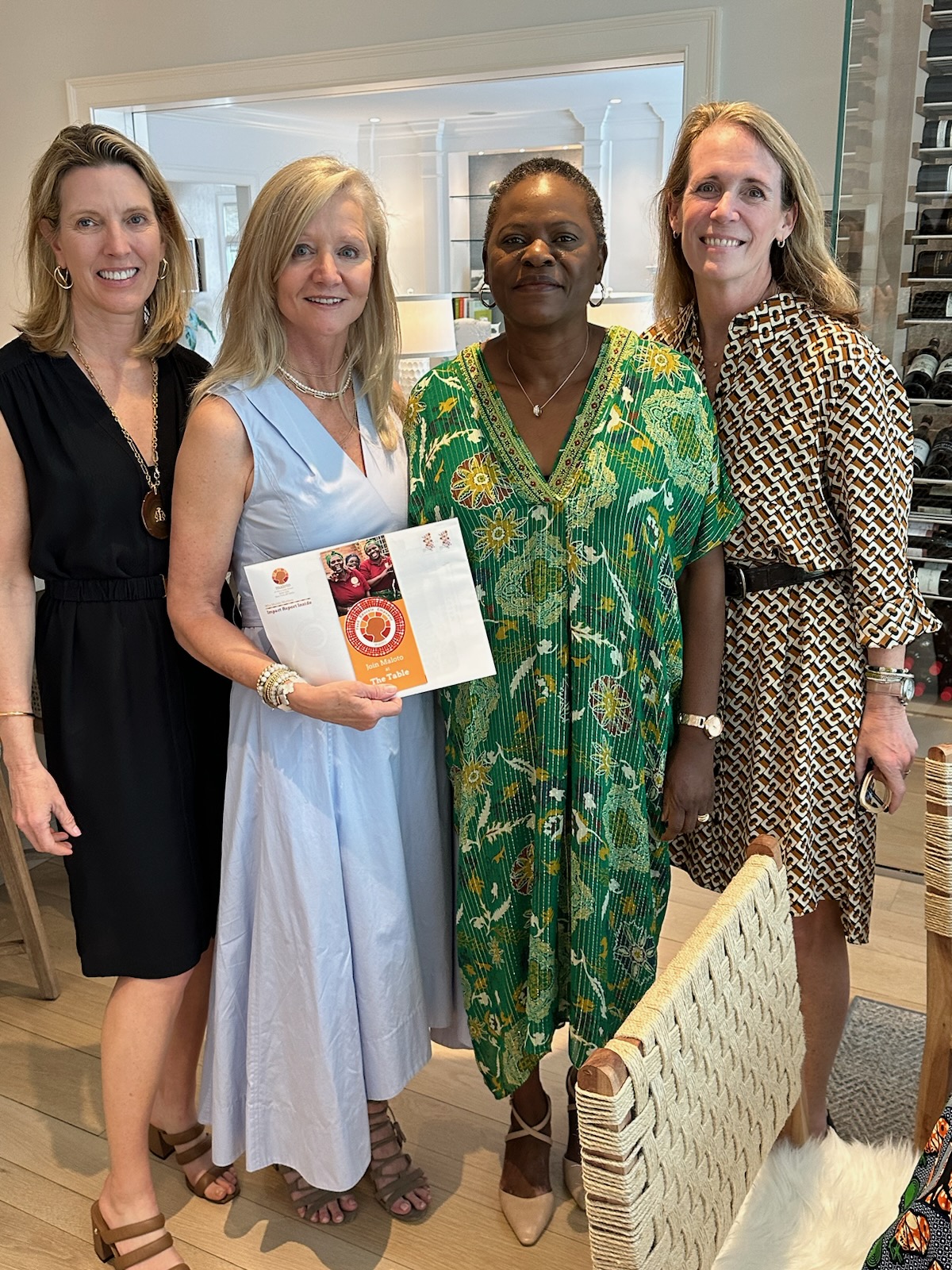When she returned to her hometown of Mzuzu, Malawi for her sister’s funeral, her life changed. Dr. Anna Msowoya-Keys had moved from Africa with her husband John to work for a humanitarian organization based in the United States. Anna had already lost other family and friends to the AIDS epidemic which had ravaged her home country. “There were so many orphaned children at the funeral, and I asked why. I was told they came to get food from the funeral feast.” This is when Anna knew she had to create a solution for these orphaned and starving children and the future of her country.
In Mzuzu, Anna began by recruiting 20 local women and formed a local CBO, Community Based Organization, with the mission to feed the children of this town. On that trip, she gave them a small amount of money to begin. Anna then went back to the United States to raise more funding.

At Anna’s first fundraiser in the US, Claire Johnston was so moved by her talk that she immediately asked Anna, “How can I help?” That simple question began a deep friendship between Anna and Claire that led to the formation of Maloto. Maloto, which in the Malawian language of Tumbuka, means “to dream,” was formed as the fundraising arm to support the programs in Mzuzu, Malawi. Claire recruited Liza Nugent, a longtime friend, to assist with her efforts. That was 15 years ago.
The first funds were used to feed the children and the next mission was to educate the children. Anna was able to secure a piece of land from the government to start a school. She began with a 7th-grade class of 20 students. “We wanted to train students who could be the country’s future leaders.” Today the British-accredited school, Mzuzu International Academy, has almost 400 students in grades K through 12. Many of the original students have now graduated from college…in a country where less than 1% attend college. They are Malawi’s future leaders.
Next, Anna wanted to provide a business that could support the people of this area. As a Maloto board member, Meredith Brokaw, wife of famed broadcaster Tom Brokaw, chose to visit the village to see the work that was being done there firsthand. She noticed an overabundance of tomatoes that were rotting on the vine. She said, “I’m a Midwesterner and my grandmother taught me how to jar tomatoes. I’ll teach you the same.”
The board of Maloto, including Meredith, Claire, and Liza, knew supplies were needed to jar the tomatoes. They approached a jar company in the States who believed in what Maloto was doing and donated jars to the project. With this donation of supplies, the women of Mzuzu were able to get a tomato jarring operation in place and sales took off. Calling their food company, Kwithu Kitchen, these women eventually began to jar honey from local female beekeepers as well. Anna says, “Our honey sales are up 44% year over year and we’re adding coffee now too.”
Since that first fundraiser, through events and talks, Maloto has raised significant funds for the efforts in Malawi. There is even a café in place called, Kwithu Café. When I asked Claire, as the Board Chair of Maloto, what she would do with an influx of funds, she said, “We’d empower the women to grow their food business to meet the demand seen in the country. By giving this community the power to make money, we are giving them the freedom to feed and educate their People.”
What else are these amazing women doing? There is a physical education program and even a U14 soccer team. There are 60 3 and 4-year-olds in early education, a 100% graduation rate at the Mzuzu International Academy, and 15 scholarships for graduates to go to university. This organization supports 4 different income-producing activities run by women, including six all-women beekeeping clubs. Tomato product sales have increased 76% since 2021 and they now offer hot chili sauce, tomato sauce, and tomato jam. Wow! Pretty incredible!!!! Talk about women’s empowerment!?!?!?
This mission of Maloto is to provide an opportunity for Africans to help Africans. Anna says her success came because the people around her believed in what she planned to do. “We knew what the problems were and what the solutions could be.”
VentureMom Tip
When you see an urgent need, immediately do what you can, and then build a bigger plan to help the long term.







